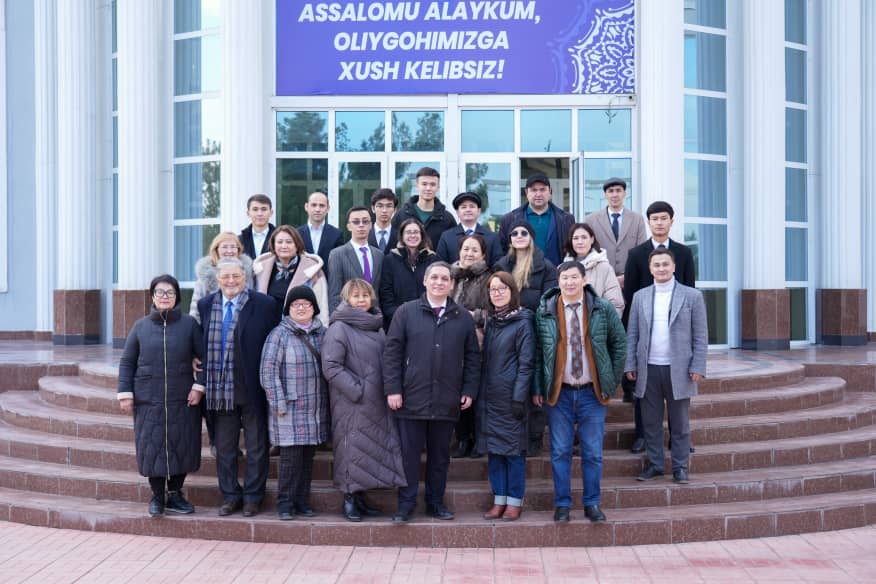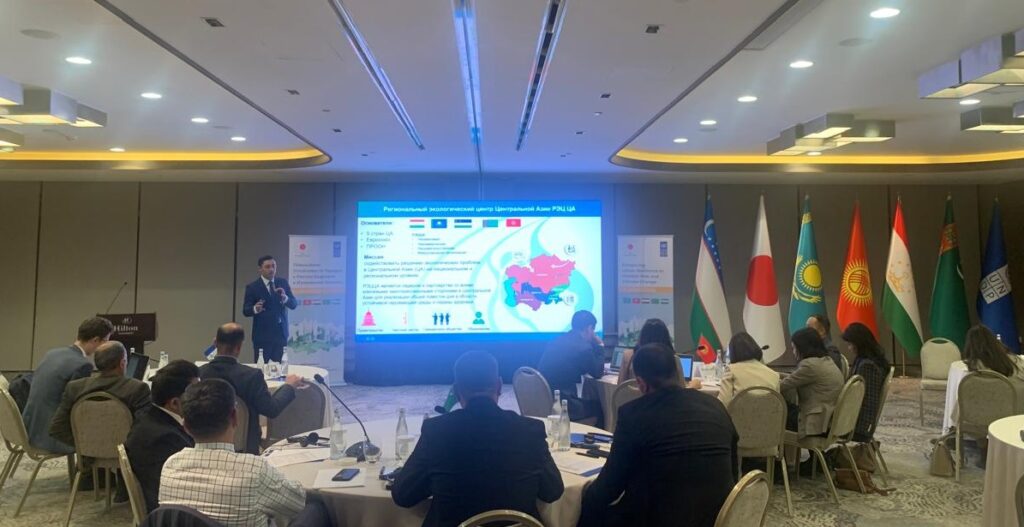Almaty, Kazakhstan, September 11, 2024 – On the third day of the 14th Central Asian Leadership Program on Environment for Sustainable Development (CALP), participants immersed themselves in modern water management technologies and climate risk studies in the region’s mountainous areas.
The day began with a session on “Water Management Technology” where Nigmyat Nurtaza, OSCE Program Assistant in Astana, presented innovative approaches to using machine learning and geographic information systems (GIS) to enhance climate resilience and sustainable decision-making in water management.
Then, the participants took part in preparation and implementation of a simulation exercise led by Nigmiyat Nurtaza, which allowed to consolidate theoretical knowledge in practice. The simulation showed how modern technologies can help in solving water management problems in Central Asia.
After lunch, the discussion continued with sessions on disaster risk management in mountains. Roman Karazhanov and Aigerim Bolatova from the German Agency for International Cooperation (GIZ) presented an overview of the Green Central Asia program and the project on climate risk management in the region.
Special attention was paid to the work of the Central Asian Regional Glaciological Center. Vasily Kapitsa spoke about the Center’s activities in studying the components of the cryosphere of Kazakhstan and Central Asia, and Sandugash Ranova from the Institute of Geography and Water Security highlighted research aimed at preventing natural disasters such as mudflows, avalanches and landslides in the mountainous areas of Ile Alatau.
The day ended with an active discussion and debriefing where participants could ask questions and discuss the next steps in climate risk and water resources management in Central Asia.
Additional information: Valeria Orlova, Manager of the “Education for Sustainable Development” program CAREC, esd@carececo.com



